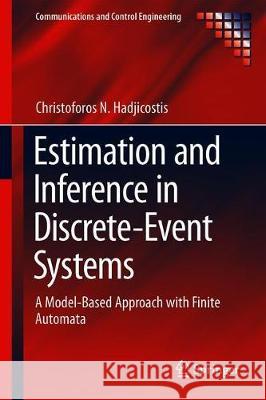Estimation and Inference in Discrete Event Systems: A Model-Based Approach with Finite Automata » książka
topmenu
Estimation and Inference in Discrete Event Systems: A Model-Based Approach with Finite Automata
ISBN-13: 9783030308209 / Angielski / Twarda / 2019 / 346 str.
Estimation and Inference in Discrete Event Systems: A Model-Based Approach with Finite Automata
ISBN-13: 9783030308209 / Angielski / Twarda / 2019 / 346 str.
cena 563,56
(netto: 536,72 VAT: 5%)
Najniższa cena z 30 dni: 539,74
(netto: 536,72 VAT: 5%)
Najniższa cena z 30 dni: 539,74
Termin realizacji zamówienia:
ok. 16-18 dni roboczych.
ok. 16-18 dni roboczych.
Darmowa dostawa!
Kategorie:
Kategorie BISAC:
Wydawca:
Springer
Seria wydawnicza:
Język:
Angielski
ISBN-13:
9783030308209
Rok wydania:
2019
Dostępne języki:
Numer serii:
000397793
Ilość stron:
346
Waga:
0.63 kg
Wymiary:
23.62 x 15.75 x 1.78
Oprawa:
Twarda











